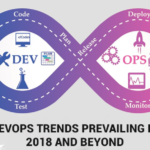As one of the world’s largest e-commerce platforms, Magento was first launched in 2008 by Varien.Inc. The company was acquired by Adobe for 1.68 billion dollars in May 2018.
E-commerce services powered by Magento are flexible and end-to-end. Merchants can customize the site’s functions. By using the open-source platform, they can create the best experiences for consumers.
Make sure this platform fits your business requirements before choosing it.
The pros and cons of the Magento e-commerce platform are discussed in this article.
Before settling on a single solution, you should weigh your options. Instacarma has been providing Magento development services for 20+ years, so we know exactly who might benefit from the platform. Check out the pros and cons of the Magento e-commerce platform and see if it’s right for your business.
Magento Commerce vs. Magento Open Source
Let’s take a quick look at what Magento has to offer before diving into its advantages and disadvantages. Two editions of Magento have been available since its launch:
- The Magento Open Source project (formerly Magento Community). It is possible to download the core code of this edition for free and edit it according to one’s needs. With this edition, you can enhance its functionality by adding custom modules and/or ready-made extensions from the Magento Marketplace.
- In the past, Magento Enterprise was known as Magento Commerce. In addition to the self-hosted version, the Magento Commerce Cloud edition can also be installed in the cloud. A much wider range of features is available than with Magento Open Source, which is suitable for mid-market companies and large enterprises. The first step to developing an online store on Commerce Edition is to create an account in Magento and pay the license fee.
Here are some advantages of Magento Enterprise.
Why should you choose Magento 2 as your e-commerce platform?
Nike and Ford are two of the biggest brands in the world, and there are good reasons why they love Magento. In the ecommerce market, the platform was one of the most robust, flexible, user-friendly, and scalable. Let’s explore the advantages of Magento ecommerce in more detail.
Magento is a popular e-commerce platform used by businesses of all sizes. Its cloud-based solution, Magento Commerce Cloud, offers several advantages that make it a great choice for online retailers. In this blog, we’ll discuss some of the pros of using Magento’s cloud-based solution.
- Scalability
One of the most significant advantages of using Magento Commerce Cloud is its scalability. As your business grows, your website needs to handle an increasing number of customers and transactions. Magento Commerce Cloud allows you to scale your resources up or down as per your business needs. This means that you can easily handle seasonal spikes in traffic or sudden surges in demand without having to worry about website crashes or slow load times.
- Security
Security is a critical concern for any e-commerce website. With Magento Commerce Cloud, you get enterprise-level security features that keep your website and customer data safe from cyber threats. Magento’s cloud-based solution includes advanced security features such as web application firewalls, malware scanning, and automatic security patches.
- Speed
Website speed is a crucial factor that determines your website’s success. Magento Commerce Cloud is optimized for high-performance and provides faster load times than traditional hosting solutions. This means that your customers can access your website quickly, browse through your products, and complete transactions without any lag.
- Flexibility
Magento Commerce Cloud provides a flexible and customizable solution that meets the unique needs of your business. You can choose from a range of templates, themes, and extensions to create a customized e-commerce website that reflects your brand identity. Magento Commerce Cloud also integrates with other systems, including payment gateways, shipping carriers, and third-party tools, making it easy to manage all aspects of your online business from a single platform.
- Support
Magento Commerce Cloud provides 24/7 support to its customers, ensuring that your website is always up and running. The support team is available to help you with any technical issues or questions you may have, ensuring that your website is always functioning at its best.
The cons of Using Magento’s Cloud-based Solution
Magento is a popular e-commerce platform that allows businesses to create and manage online stores. While Magento offers both an open-source and cloud-based solution, there are some cons to using Magento’s cloud-based solution that businesses should be aware of before making a decision.
- Limited Control and Customization Options
One of the biggest cons of using Magento’s cloud-based solution is the limited control and customization options. Since the platform is hosted on Magento’s servers, businesses have limited access to the underlying infrastructure and may not be able to make changes or modifications as easily as they would with an open-source solution. This can limit a business’s ability to customize their website and create unique features that set them apart from their competitors.
- Higher Costs
Another con of using Magento’s cloud-based solution is the higher costs compared to the open-source version. The cloud-based solution comes with a monthly fee that can be more expensive than hosting the platform on your own servers. Additionally, businesses may incur additional fees for add-ons, extensions, and support services, which can quickly add up and make it more difficult to manage expenses.
- Limited Flexibility
Magento’s cloud-based solution may also limit a business’s flexibility to integrate with third-party systems and services. Since the platform is hosted on Magento’s servers, businesses may not be able to access certain APIs or integrate with other systems as easily as they would with an open-source solution. This can limit a business’s ability to expand their website’s functionality and create a seamless experience for customers.
- Dependence on Magento’s Support Team
When using Magento’s cloud-based solution, businesses are dependent on Magento’s support team to manage and maintain the platform. While this can be convenient for businesses that don’t have the resources to manage their own servers, it also means that businesses are relying on a third-party for support and maintenance. This can limit a business’s ability to quickly resolve issues or make changes to the platform.
- Potential Downtime and Data Security Concerns
Finally, businesses that use Magento’s cloud-based solution may be more susceptible to downtime and data security concerns. Since the platform is hosted on Magento’s servers, businesses are relying on Magento to ensure that the platform is always up and running and that customer data is secure. If there are any issues with Magento’s servers, it could result in downtime for a business’s website or potential security breaches that could compromise sensitive customer information.
Conclusion
In conclusion, Magento Commerce Cloud is an excellent choice for businesses looking for a cloud-based e-commerce solution. With its scalability, security, speed, flexibility, and support, it provides everything you need to create a successful online store. So if you’re looking for a powerful e-commerce platform that can grow with your business, Magento Commerce Cloud is worth considering.
















